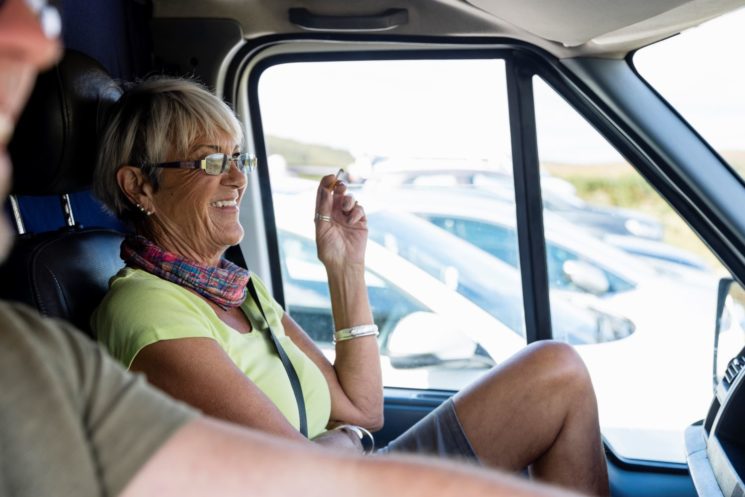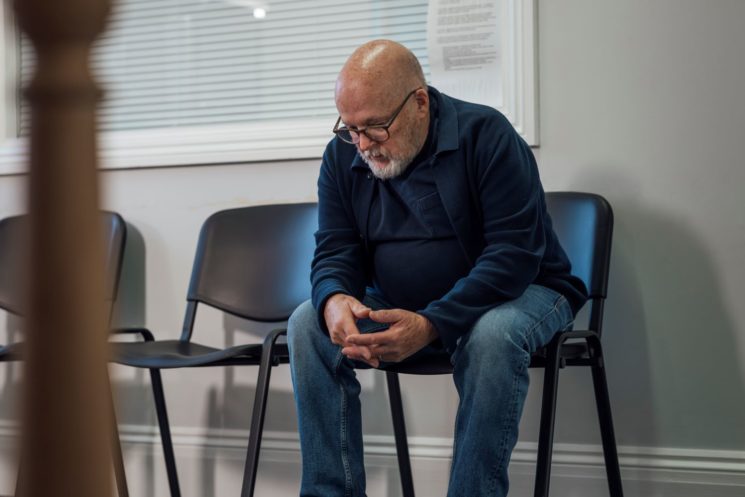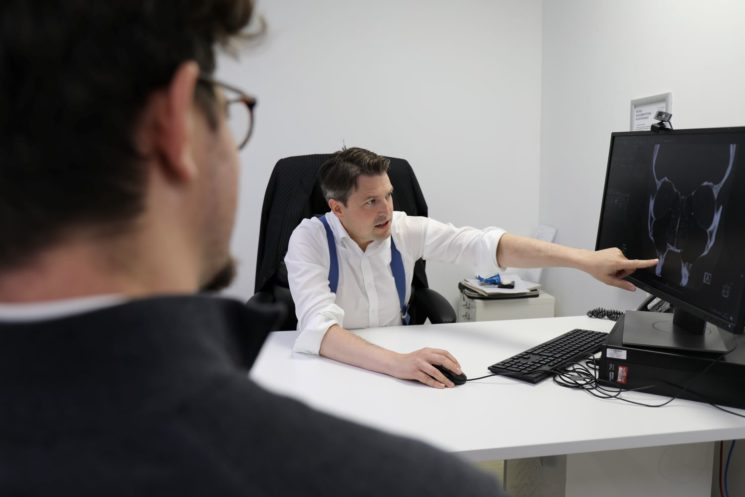Dr Doraid Alrifai is an experienced consultant medical oncologist who manages patients suffering from thoracic (lung, mesothelioma, thymoma) and urological (kidney, ureter, bladder, prostate, and penile) malignancies.
Dr Alrifai was involved in the development of the non-specific symptoms pathway at Cromwell Hospital, which assesses patients who have unexplained gastrointestinal symptoms and are worried about a cancer diagnosis.
What does your role as a consultant medical oncologist involve?
Caring for cancer patients has changed so much over the years. The use of up-to-date technology has revolutionised what we can now do for patients. I frequently use genomic sequencing (a test used to study a patient’s cancer in greater detail) to characterise thoracic and genito-urinary cancers.
This allows me to carefully select the most up-to-date, personalised treatments for my patients, such as drugs with specific targets, immunotherapy agents, chemotherapy, and radioligand therapy. Being proficient in managing the side effects of these treatments is hugely important to patients.
As an oncologist, having the ability to work in a team and cultivate good planning and organisational skills is critical to delivering this high level of care. To be able to do this well, it’s essential that I can deliver clinical information to patients and families in a digestible and concise manner. Building a robust rapport with patients leads to a healthy relationship and an easier decision-making process.
What attracted you to specialising in medical oncology?
The leading-edge nature of cancer medicine and the constant movement of the goal posts keeps you on your toes. The rapid developments we have seen and immense global progress in treating this awful disease has attracted me to this type of work. Caring for patients who suffer with cancer and the opportunity to use new and novel therapeutic treatments is hugely exciting, which thankfully is leading to better outcomes.
What does a ‘typical’ day in your life look like?
My week varies from day to day. One day I could be in a clinic room seeing new patients, informing them of their diagnosis and starting new treatment, to being on the wards and visiting inpatients individually. As well as attending specialist multidisciplinary team meetings advising on patient cancer care, I also lead oncology clinical trials at a big academic teaching hospital in London. I am heavily involved in teaching and management.
What do you enjoy most about your job?
I love my job. The privilege to help people with such devastating diagnoses and bring some hope with our treatment is very satisfying. Caring for patients and being involved in this way is hugely rewarding. Working in a team to achieve these goals is immensely meaningful.



